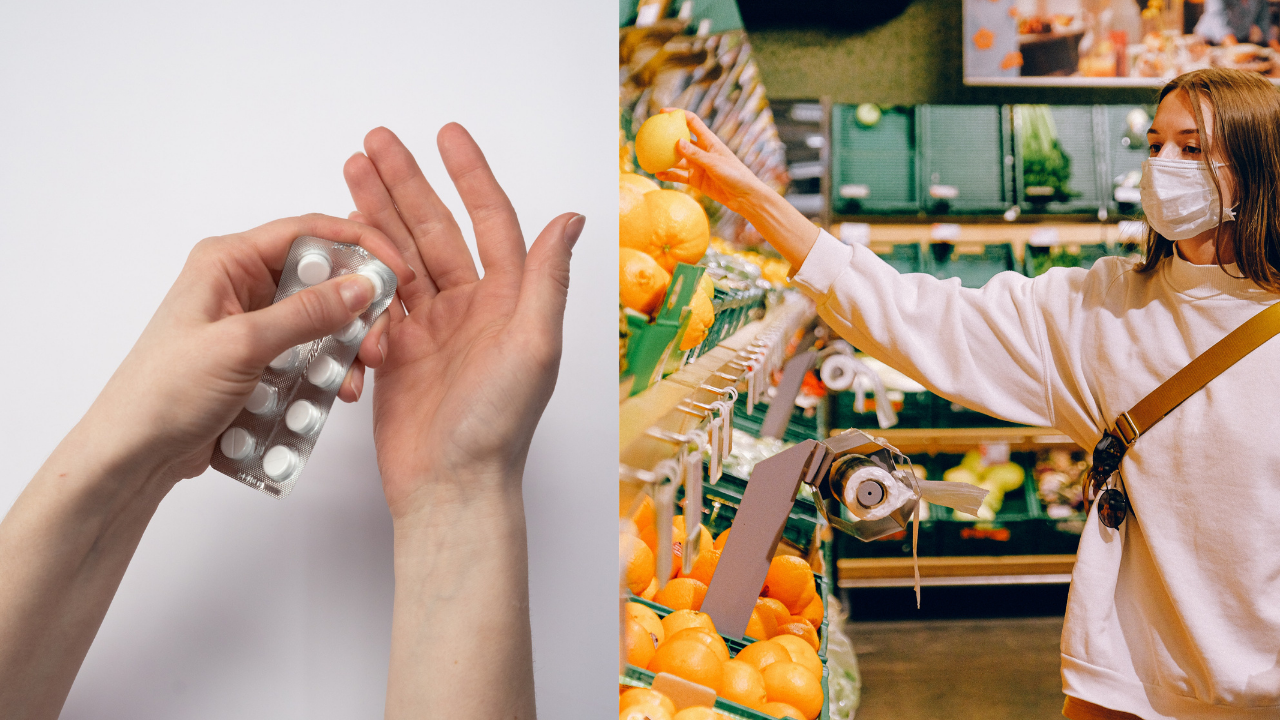
So, you’re one of the 12 Aussies who doesn’t have COVID rn? Go you! But it might be wise to start preparing for a visit from the ‘rona.
The federal government has warned everyone to prepare to catch it in the coming days and weeks, and experts predict 60 per cent of the population will have had COVID in the next two weeks.
There are currently more than 500,000 confirmed active cases of COVID across the country, with close to a million cases reported during the current outbreak.
The real number is estimated to be higher due to a lack of available testing and NSW residents not yet required to report positive rapid antigen test results.
With but NSW and Victoria’s daily infections not predicted to peak until mid-February, those who’ve managed to avoid Miss Omicron thus far are still fairly likely to get it soon.
Australia????????Cases????Tests????Hospitalisations & Deaths????10/01/2022????
973,470 Cases in AUS
438,024 (+32,713) recovered????
528,565 (+13,011) active????
2,389 (+20) deaths????963,852 Local (+49,522)
9,618 OS????(+21)57,346,339 tests????(+221,101)
3,523 (+200) in????325 (+25) in ICU
— CovidBaseAU ???????????????? (@covidbaseau) January 10, 2022
Federal deputy chief medical officer Michael Kidd said on Monday many Australians would test positive in January and urged people to prepare.
“It’s important to be prepared because you won’t be able to go to your supermarket or pharmacy if you are diagnosed with COVID-19,” he said.
So if you get it, what do you need?
Take it from someone whose entire household caught the ‘vid on the same day and had to rely on friends and family to drop supplies off — there are a few things you can do while you’re still able to go to the shops.
Hit up the chemist
Make sure you’re fully stocked with paracetamol (eg Panadol) and ibuprofen (eg Nurofen) to treat symptoms such as fever, aches and pains.
Decongestants such as pseudoephedrine, the active ingredient in some cold and flu pills, can also relieve symptoms like runny nose or sinus pains.
Throat lozenges can relieve the Omicron-specific sore throat or a raspy throat from coughing.
And get yourself some electrolytes, either powder, icy poles, or a natural alternative like a coupla slabs of coconut water. Hydration is absolutely key to recovery and managing symptoms, no matter what they are.
Do your grocery shopping
It’s important to make sure you’re eating properly while you’re sick, which means not skipping meals and getting a variety of nutrients.
Your body needs this variety to have the strength to fight the virus, and while we know there’s a food supply shortage at the moment, try shopping at your local small grocer or market rather than supermarket. Ordering fast food might be ~self care~ while you’re sick, but you need the health too, hunny.
Make sure you’ve got a few energy and nutrient-rich staples on hand over the next few weeks, such as dried or tinned legumes, tinned fish, eggs, nuts or nut butters and natural yoghurt. Check you’ve got a few packets of pasta or a big bag of rice in the pantry too.
Coming from experience, a little meal prep goes a long way.
Make and freeze a few portions of daal, curry, pasta sauce or dumplings so you can just grab and reheat on your bad days. It’s way faster than ordering delivery anyway.
Prepare your home
If you live with others, make sure you have a plan for how you’ll handle the space if one of you gets sick. Isolating in your room is tough, but it could be necessary.
Even if you may not feel super anxious about catching COVID, your housemate might, so it’s important to have the conversation.
You’re likely going to be spending a lot of time in bed, so you might feel better knowing you’ll be isolating in a somewhat pleasant space.
COVID can be pretty stressful; you don’t want piles of dirty laundry adding to that.
Try to keep your bedroom tidy and make sure you have some clean sheets on hand should you want to freshen up.
COVID can also make the symptoms of asthma and hay-fever worse, so if dust or pet hair sets you off normally, make sure you’re vacuuming regularly in case you get sick.
All in all, may your symptoms be mild and your recovery quick. But should you need medical attention, make sure your loved ones know you’re sick and don’t be afraid to ask for help or a lift to the hospital.
The post If You Haven’t Had COVID Yet, Here’s What You Should Do To Prepare In Case The Coughs Get Spicy appeared first on Pedestrian TV.







